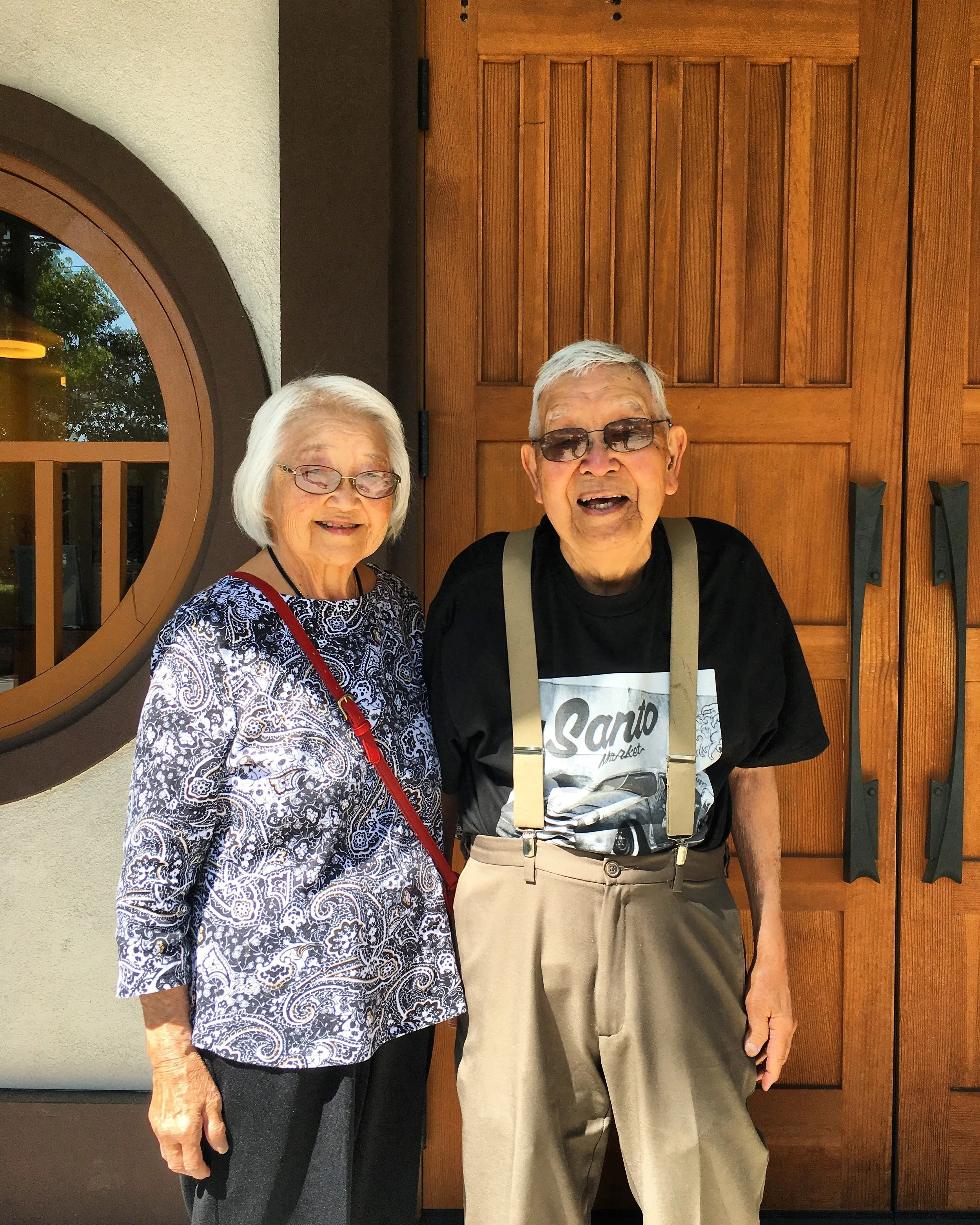Setsuko Moriya
“You know, before we left, we were like little kids. When you go into camp, you got to grow up. You're aware of other things besides yourself. And you're nobody.”
Doug Matsuda
“You had a week to get ready to go to camp. You could only take what you could wear and what you could carry with two hands. Everything else gets left behind. The United States government is telling them, ‘You have to denounce Japan and pledge allegiance to the United States. On top of that, we want you to fight for us and go to war.’ If I was my dad, I would’ve done the same thing.”
Leland Inaba
“I think the main thing is that they had themselves had nothing to do with the problem between the two countries. There’s nothing you can do to promote or diminish it. It’s out of your hands. It’s almost like God’s will. What can we do?”
Mary Iwami
“I remember my mother and I visited the bathroom building and she had fainted. Nothing like that ever happened before so I thought she had died. That was so traumatic, other ladies went to her aide and others tried to console me.”
Yosh Uchida
“Judo got kind of a bad name because after the war, there were so many people that got injured. They didn’t know how to fall or anything. So we had to correct all that, and make sure they did the right thing.”
Setsuko Asano
“What bothered me was we lost that whole family unit because the children would sit with their friends. You know, that was really lost. I think that was sad because we were a very close knit family and we all of a sudden lost that.”
Jiro Oyama
“I think that what the Isseis experienced of losing their place in the family unit has been predominant. And if you're any human being, that's a difficult thing to accommodate.”
Richard Yamashiro
A lot of people, like I said, didn’t even know we were in a camp. They see my picture and say, “What’s that?” Well, it’s my card from when I was in a concentration camp. “What concentration camp?”
Shizuko Yamauchi
“That’s something that happened to me, and so what? It’s like anything else that’s upsetting, there’s no point keeping it in your head and getting upset about it. So shrug and forget about it.”
Rose Tsunekawa
Every year my father had to go sign a lease and he’d go to the landlord's house. And I stayed in the car. He was never invited in to a white man's house. The landlord would bring the paper, and then my father would hold it against the door outside and sign it.
Yoshiko Kanazawa
“The coyotes would come down from the mountains. At night you could hear them thundering and howling and so that was a very frightening time because the camp was emptying and that was happening.”
Earl & Helen Santo
“After getting used to things, we were able to make friends. See, as people coming from the farm, we weren't able to play with other kids and it brought a lot of new friends.”
Lawson Ichiro Sakai
“You are Japanese, you became the enemy, now you have to prove you are not the enemy. We are not just doing lip service; we are out there to win the war. And if we die, we die.” Photo: Kathe Hashimoto
Aiko Ebihara
“Even before WWII, I distrusted the government’s secrecy, propaganda, and censoring that was part of the ‘war news.’ I was especially upset when I realized that letters I received from Aiko and her sister were censored.”
Kazuki Hirose
“They didn’t tell us about doing away with our citizenship or nothing. But they didn’t warn us. They had a big cafeteria or gym that we met in, the whole camp. That was all full. The people of draft age, some with their parents.”
James Tanaka
The guard tower had a heavy duty machine gun. Of course no one was standing directly behind it but it looked in. As an adult I learned another reason they locked us up was for our protection. If somebody’s going to hurt us, shouldn’t it be pointing out?
Lillian Ogata-Bonner
“With her husband gone and no other family members to help, I can only guess that my mother felt overwhelmed by such terrible circumstances and believed that my best chance at finding a stable home would be with another family.”
Roy Matsuzaki
So you know, people were after us. I mean, they didn’t want us around. They made acquisitions and threats and things like that. So I couldn't believe those things were happening. Maybe it was the best thing that they sent us into the camp, to protect us.
Jack & Grace Fujimoto
“My mom just about died in camp that first year because it was so damn hot. And I remember I used to have to go to the canteen every day. And they kept saying, ‘Hey get your ass out of here. We’re ain’t going to give you anymore ice.’ But everybody suffered if they weren’t used to the heat. So mom just about perished, died.”




















